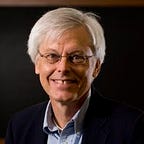Listen to the Weirdos on the Mall
Four times in my life I’ve traveled to Washington DC to join with other Americans in the expression of unpopular views. The first was in October of 1967, when, as a 16-year-old high school student, I went to the March on the Pentagon, a large demonstration against the War in Vietnam. The second was the 1969 Vietnam Moratorium to end the war, and the third was a 2005 protest against the War in Iraq.
My most recent trip to DC was on June 4 for the 2016 Reason Rally, a celebration of life without gods. It was a relatively small festival of people who call themselves atheists, non-believers, free thinkers, secularist, and humanists. After hearing a dramatic speech by David Silverman, President of American Atheists, many of us felt better about just owning our beliefs and not sugarcoating them. We’re atheists. Plain and simple. We don’t believe in gods.
If you had been at those four rallies and marches over a period of 50 years, you would have noticed something they all had in common. Many of the people looked weird, unconventional, and probably unlike the people you know back home — no matter where home might be.
The March on the Pentagon was attended by clergy, Vietnam veterans, Dr. Benjamin Spock, and the singers Peter, Paul, & Mary. But there were also hippies, Yippies, socialists, communists, and anarchists. Marijuana smoke floated above the reflecting pool, and the Yippie leader Abbie Hoffman, assisted by poet Allen Ginsberg, chanted in an effort to end the war by levitating the Pentagon building. It was a ragtag group of ’60s people who had only one thing in common: opposition to an immoral war.
At the Reason Rally this past weekend, there were crazy costumes, placards, and funny t-shirts. People of all genders sported piercings and pastel colored hair, and I met a nice woman with the words “Ardent Atheist” tattooed in big letters across her chest.
As strange as they were, the people at all four of these gatherings on the National Mall had something else in common: they were right.
Decades later there is little dispute that United States intervention in Vietnam was a horrible mistake based on a false “Domino Theory” of communist expansion. If President Lyndon Johnson had listened to the weirdos on the mall in 1967, there would be 38,000 fewer names on the wall of the Vietnam Veterans Memorial, and countless Vietnamese would also have lived.
The same is true of the War in Iraq. Today, the remaining presidential candidates are doing everything they can to distance themselves from the decision to engage in a devastating unprovoked attack that produced worldwide instability. Once again, the weirdos were right.
The fight for a world of reason and science has not been won. It is still taboo to admit you’re an atheist. There is not a single openly atheist member of Congress, and although there is growing acceptance of non-believers, a recent Gallup poll showed that only 58 percent of Americans would vote for a well-qualified presidential candidate who was an atheist.
It’s hard to convince people give up religion, but I am hopeful that history will show we atheist weirdos were the harbingers of a more rational world.
Putting aside the god question, I was proud to be counted among the participants in the Reason Rally because we have so many other beliefs in common. Embracing science and reason produces many positive outcomes. Based on the reactions of the crowd to the speakers, I can assure you that atheists are strong supporters of:
• LGBT rights
• Women’s reproductive rights
• Efforts to curb global warming
• The use of vaccines and other science-based medical practices
• Religious freedom for all — not just for atheists
Donald Trump was a very unpopular person at the Reason Rally.
To be sure, all the weirdos on the mall are not prophets. Perhaps I’ve just been lucky with the movements I’ve chosen. But two things are probably true:
1. Many important ideas start out being unpopular.
2. Unconventional people are more willing to express unpopular ideas.
Often it is the iconoclast, the weirdo, the person who is not a slave to fashion, who is willing to stand up and say what needs to be said.
So don’t shun the weirdos. Listen to them. Become one.
